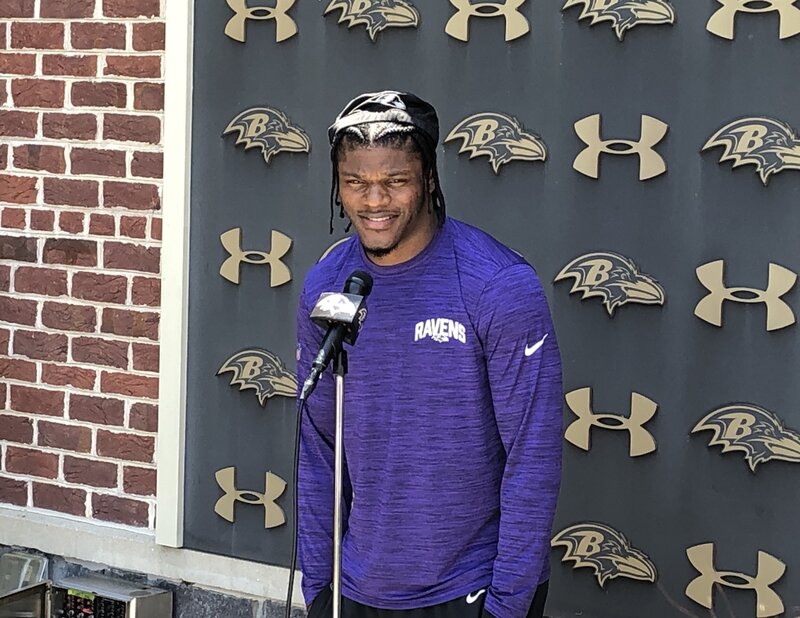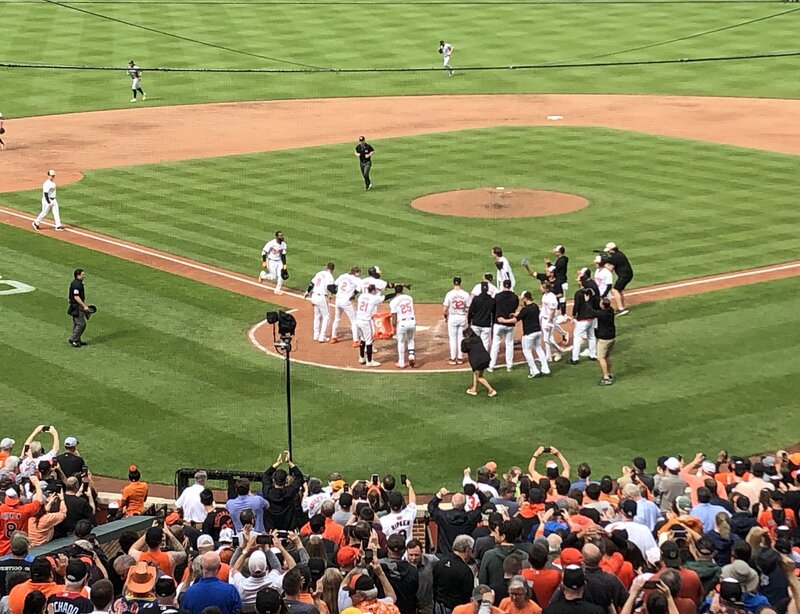OWINGS MILLS, Md. — You’d be hard pressed to find too many Ravens fans who knew Anthony Levine’s name prior to Sunday’s 21-7 win over the Tennessee Titans.
Making his first career start for a revamped and injury-riddled secondary that was still licking its wounds from an embarrassing performance in Pittsburgh, the former safety seized the opportunity after previously playing just five defensive snaps in his entire NFL career. Levine finished with four tackles and two pass breakups while also earning Pro Football Focus’ highest single-game grade in pass coverage for any Ravens cornerback not named Jimmy Smith this season.
“I’ve been waiting for this for a long time,” Levine said after Sunday’s win. “To call myself a starting something in the NFL — whether it was safety, corner — I was happy to say that I was a starting corner today for the Baltimore Ravens.”
Of course, Levine’s success came against a rookie quarterback and a Tennessee passing game lacking bite and it remains to be seen if he’ll survive against more potent aerial attacks, but it’s difficult not to feel good for a third-year player who spent parts of three seasons on practice squads — originally with Green Bay and then Baltimore — before even getting a chance as a special-teams contributor. The Tennessee State product played all 16 games for the Ravens last season without receiving a single defensive snap, finishing second on the team in special-teams tackles and serving as the protector on the punt team.
After watching Levine serve as a core member of his units for the last two years, special teams coordinator Jerry Rosburg takes pride in seeing him become the latest special-teams player to make the transition to starter. Several former Ravens have made similar jumps in recent years, including linebackers Jameel McClain and Dannell Ellerbe as well as cornerback Corey Graham.
“We hope that our players that are just playing special teams develop into players on their sides of the ball as well,” Rosburg said. “It’s my belief — perhaps it’s a slanted belief — that if you can be a good special-teams player, you should be a good player on offense and defense because it takes a lot of skill to play on special teams. It’s not a surprise to me that he’s developed skills that he can go out there and play for the Ravens in the secondary.”
To be fair, Levine’s opportunity to start wasn’t as much about improvement as it was about the Ravens’ injuries and attrition as the coaching staff didn’t anticipate throwing him into the fire this quickly until the Smith injury made the secondary’s issues even worse. After Levine practiced at safety in his first two years with the Ravens, defensive coordinator Dean Pees and secondary coach Steve Spagnuolo had moved him to cornerback in training camp when injuries to Lardarius Webb, Smith, and Asa Jackson left the secondary shorthanded.
It was a position at which Levine had worked some before, and he’s downplayed the change because of how comfortable he’s always felt backpedaling, a skill needed at both safety and corner. The 27-year-old really began turning heads a couple weeks ago while practicing with the scout team against the starting offense as Pees and Spagnuolo noticed how effectively he was competing against the likes of Steve Smith and Torrey Smith in coverage.
Meanwhile, cornerbacks higher on the depth chart such as Dominique Franks and Chykie Brown continued to struggle, culminating with Ben Roethlisberger’s six-touchdown performance in Pittsburgh on Nov. 2. Two days later, those two were cut and Levine received a text message from Spagnuolo saying to be ready to practice leading up to the Tennessee game.
“He just has run with it. He’s a confident guy that competes,” said Spagnuolo, who told Levine he was starting the morning of the Titans game. “He loves to practice and is passionate about the game. There’s not a guy out there he doesn’t think he can cover. That’s a good quality for a corner.”
Sharing time with newly-acquired veteran Danny Gorrer, the 5-foot-11, 203-pound Levine was strong in run support and did a fine job keeping receivers in front of him, allowing only one reception for 13 yards on three passes thrown his way in coverage. Despite the first-quarter struggles of the defense, Levine made his presence felt on the opening drive when he dropped running back Bishop Sankey on a stretch play for only a 1-yard gain.
The post-game locker room featured several teammates praising Levine as a hard worker who had done everything he could for the opportunity. While most media and fans expected Gorrer to be the one to start at cornerback in the buildup to the Tennessee game, Webb complimented Levine’s performance in practice without being prompted last week, a hint that the special-teams player just might be the next man up.
“We all know that Levine can make plays in practice against the top receivers, Steve and Torrey,” Webb said following the game. “That’s how he is in practice, he’s always going 110 percent on special teams — all phases of special teams — and playing defense. You have to look up to that. He did a great job doing everything. He’s a corner, he’s a playmaker.”
Those labels are different than what Levine’s used to hearing after years as a practice-squad member, special-teams contributor, and scout-team player who remained anonymous with most of the outside football world.
Though the Ravens will continue to face questions in their secondary week after week, Levine was able to provide an answer for at least one Sunday. And he earned another shot after the bye against a more imposing opponent in the New Orleans Saints to prove that he’s not just a special-teams player playing out of position.
“Sometimes you have to be careful of pigeonholing guys like that,” Pees said. “Give them an opportunity, [and] then it’s up to them to run with it. I just think that’s a credit to them when they get the opportunity to seize it.”










